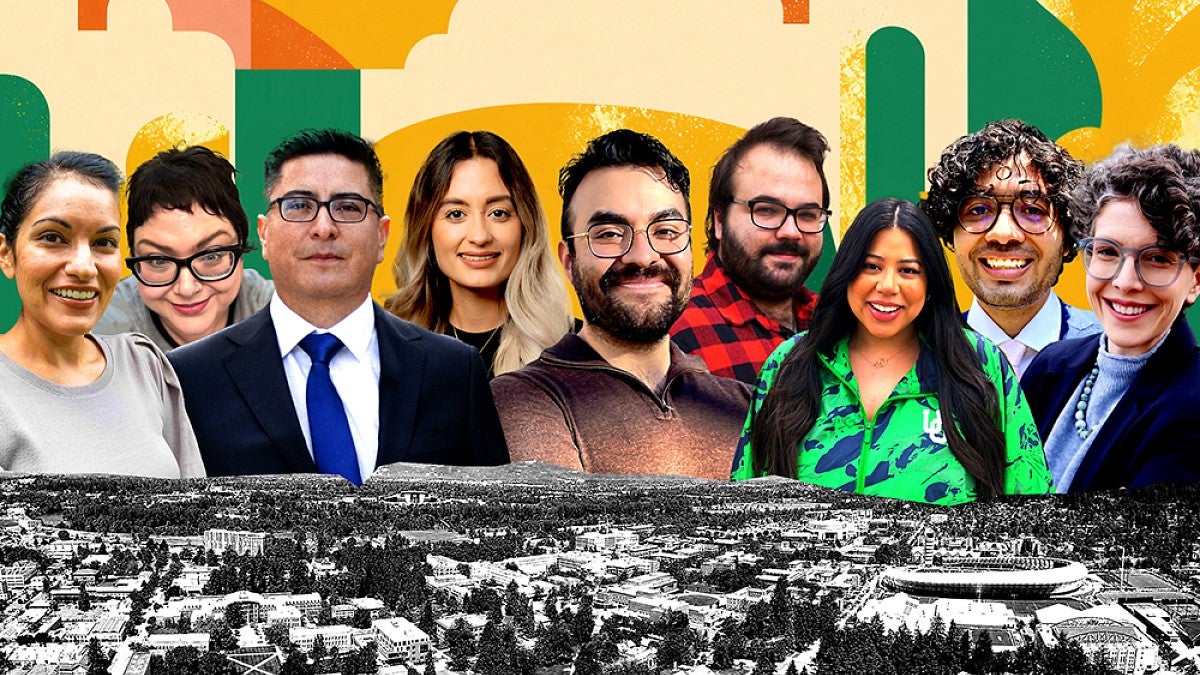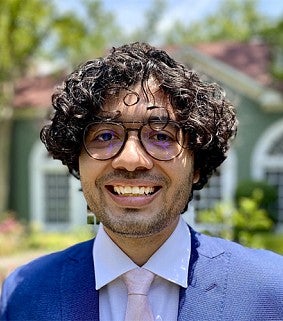
The College of Arts and Sciences is investing in its Latinx studies courses by hiring nine new tenure-track faculty members. The new hires will offer courses to meet the demands of a growing Latinx Studies Minor Program, mentor undergraduate and graduate students, provide fresh perspectives in their disciplines—and more.
After wrapping up a doctoral studies program at University of California, Los Angeles, Salvador Herrera comes to the Department of English with expertise in contemporary Latinx literature and performance art.
“I am particularly interested in avant-garde and speculative aesthetics that defamiliarize everyday social relations and imagine a world beyond national borders,” he says. “Specifically, I draw from Chicana feminism and queer and trans* of color critique to elucidate how these artists rupture the nation’s unconscious and rethink the limits of the human body. Transborder artists teach us that the erotic potential of nature cannot be reduced to the hierarchical values ascribed to it by coloniality.”

How does Latinx studies enrich a liberal arts degree?
As a first-generation college student from a low-income background, I did not fully understand the why behind the formation of my own communities. I knew what it was like to grow up in a Spanish-speaking household, to have family members who migrated to the US, and how it felt to enjoy the diverse cultures that constitute my heritage within an urban ethnic enclave.
However, I did not have the knowledge to contextualize the socioeconomic inequality that we experienced. I did not understand the structural processes at play, nor the centuries of history that brought my people here. I did not know what it meant for me to be “Latino,” and I still question that identity formation. In fact, developing critical thinking is the point of an education in Latinx Studies, even for those who do not identify as such.
All students should take a course in the field so they can begin to grasp how America extends beyond the United States. Our scholarship shines a light on how our very existence relies on the historical and ongoing displacement, detention, and debasement of racialized populations around the globe. Latinx Studies enables students to question the status quo, and to begin to imagine a world otherwise.
Did you always want to be a professor?
I did not know it was possible for someone like myself to become a professor until I was accepted to the Mellon Mays Undergraduate Fellowship (MMUF) program at Cornell University.
The program is dedicated to increasing the representation of people from marginalized backgrounds in academia. At the time, I was beginning to major in English literary studies where I was exposed to cultural and social theory. I also started to take courses in Latinx Studies. Something clicked for me at these intersections. I realized that I could conduct research on literary texts I loved. I also realized I could write about my thoughts and play with ideas as part of my reading process. I was hooked, and this is what started me on my path to becoming an academic researcher.
In turn, I plan to give back to and mentor students at the graduate and undergraduate level who want to pursue their passion projects in service of the communities they care for and cultivate.
Favorite food:
Jíbaritos. Unique to diasporic Puerto Ricans in Chicago, it consists of steak, onion, cheese, lettuce, tomato and aioli sandwiched between two fried plantains. I would invite everyone to try one in Humboldt Park, but I am afraid you might ruin the neighborhood.
